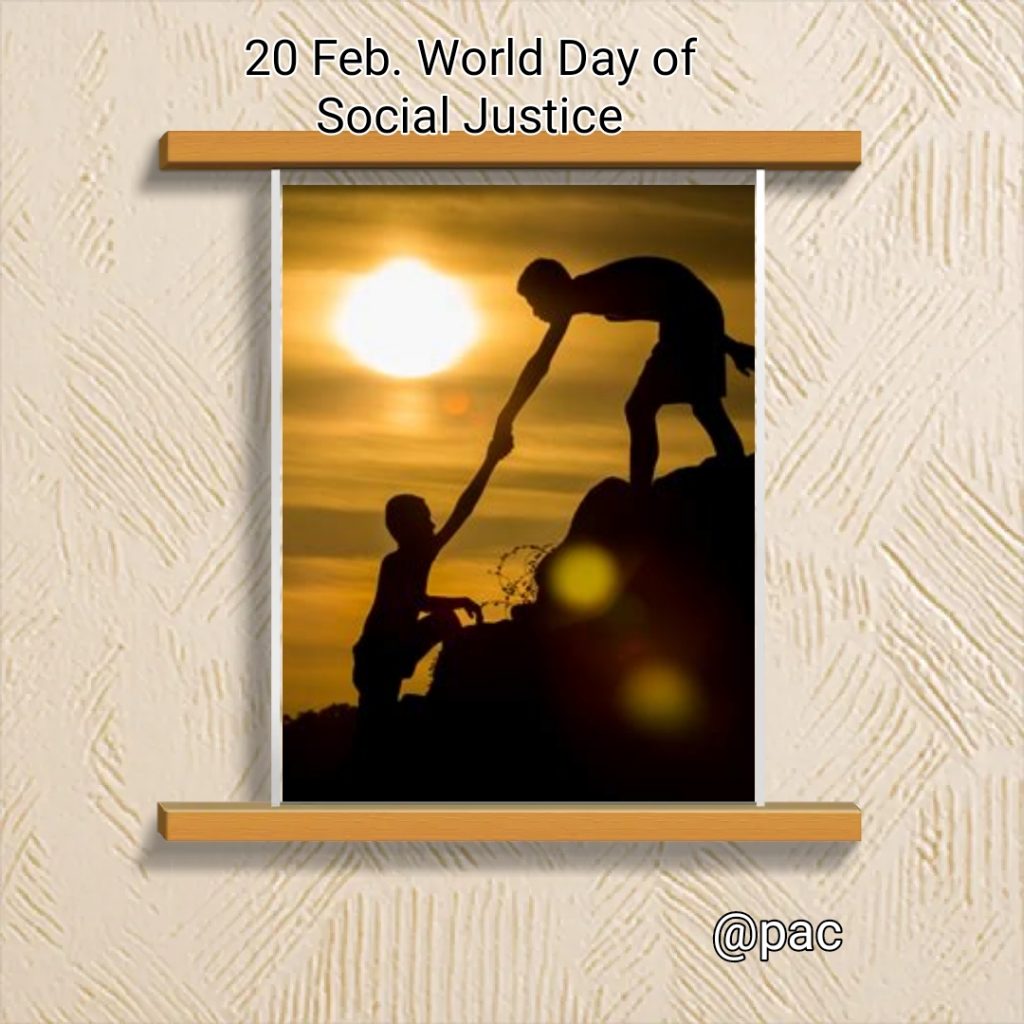
Fr. Jesudoss Lourdu Xavier S. J.
Is it just a ‘concept’ or ‘reality’? Is it based on a sense of equality, brotherhood, care and concern for all creatures or a high-sounding slogan that does not touch human life?
The phrase ‘social justice’ has become so familiar to us that most of us perhaps do not even notice it! For some forces, it has even become a word that is relative, that is subjective and could easily be trampled with.
Is there a faith, a religion, a constitution of a country wherein justice has no place? Is there an organization in the world, government or non-government which does not make the word justice as part of its vision, mission or motto?
While literally we humans love to embrace it for wordings, when it comes to the practice of it, it does not get down below its ideal seat of comfort.
For nearly 40 years now, we have been part of Paharia tribe living and sharing their lives and trying to encourage them to develop themselves. The hard fact is ‘a sense of social justice’ has not affected positively those who profit out of the ignorance of these original settlers of this land.
As we celebrate the ‘World Day of Social Justice,’ may the sense of ‘social justice’ permeate our very souls and be our guiding factor as we move ahead in the care of these people.
Rejoinder by the Editor:
The author of the article has raised many questions.
The following message spells out what we frail human beings are in the process of our service. Roadblocks and stonewalls, powers and principalities will be plenty along our path of service. The change we envision does not take place overnight. But, we move on, looking at the ‘target’ and keeping in mind the words of Cardinal Dearden.
“Prophets of a Future Not Our Own
It helps, now and then, to step back and take a long view.
The kingdom is not only beyond our efforts, it is even beyond our vision.
We accomplish in our lifetime only a tiny fraction of the magnificent
enterprise that is God’s work. Nothing we do is complete, which is a way of
saying that the Kingdom always lies beyond us.
No statement says all that could be said.
No prayer fully expresses our faith.
No confession brings perfection.
No pastoral visit brings wholeness.
No program accomplishes the Church’s mission.
No set of goals and objectives includes everything.
This is what we are about.
We plant the seeds that one day will grow.
We water seeds already planted, knowing that they hold future promise.
We lay foundations that will need further development.
We provide yeast that produces far beyond our capabilities.
We cannot do everything, and there is a sense of liberation in realizing that.
This enables us to do something, and to do it very well.
It may be incomplete, but it is a beginning, a step along the way, an
opportunity for the Lord’s grace to enter and do the rest.
We may never see the end results, but that is the difference between the master
builder and the worker.
We are workers, not master builders; ministers, not messiahs.
We are prophets of a future not our own.”
______________
This prayer was first presented by Cardinal Dearden in 1979 and quoted by Pope Francis in one of his instructions.